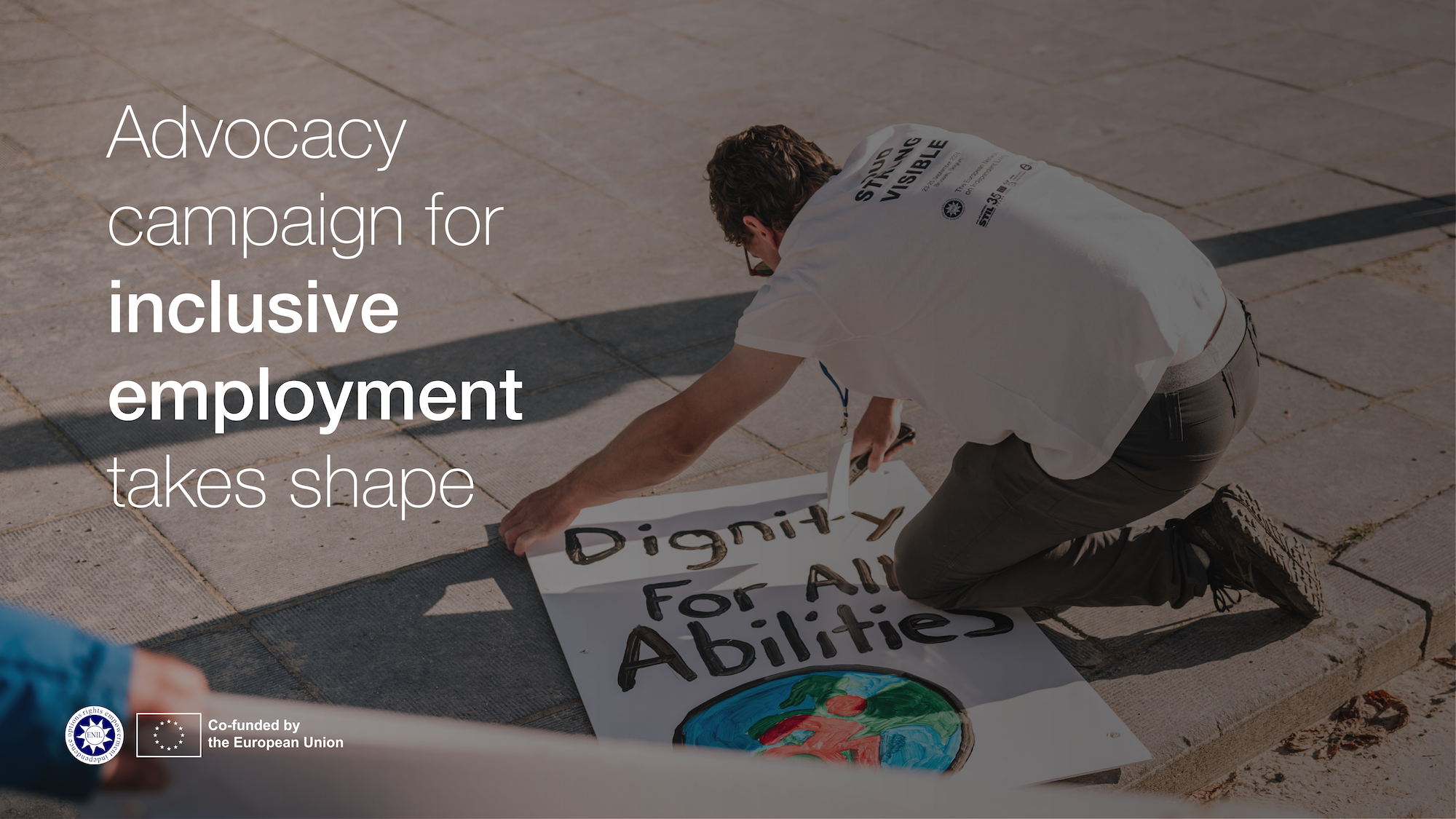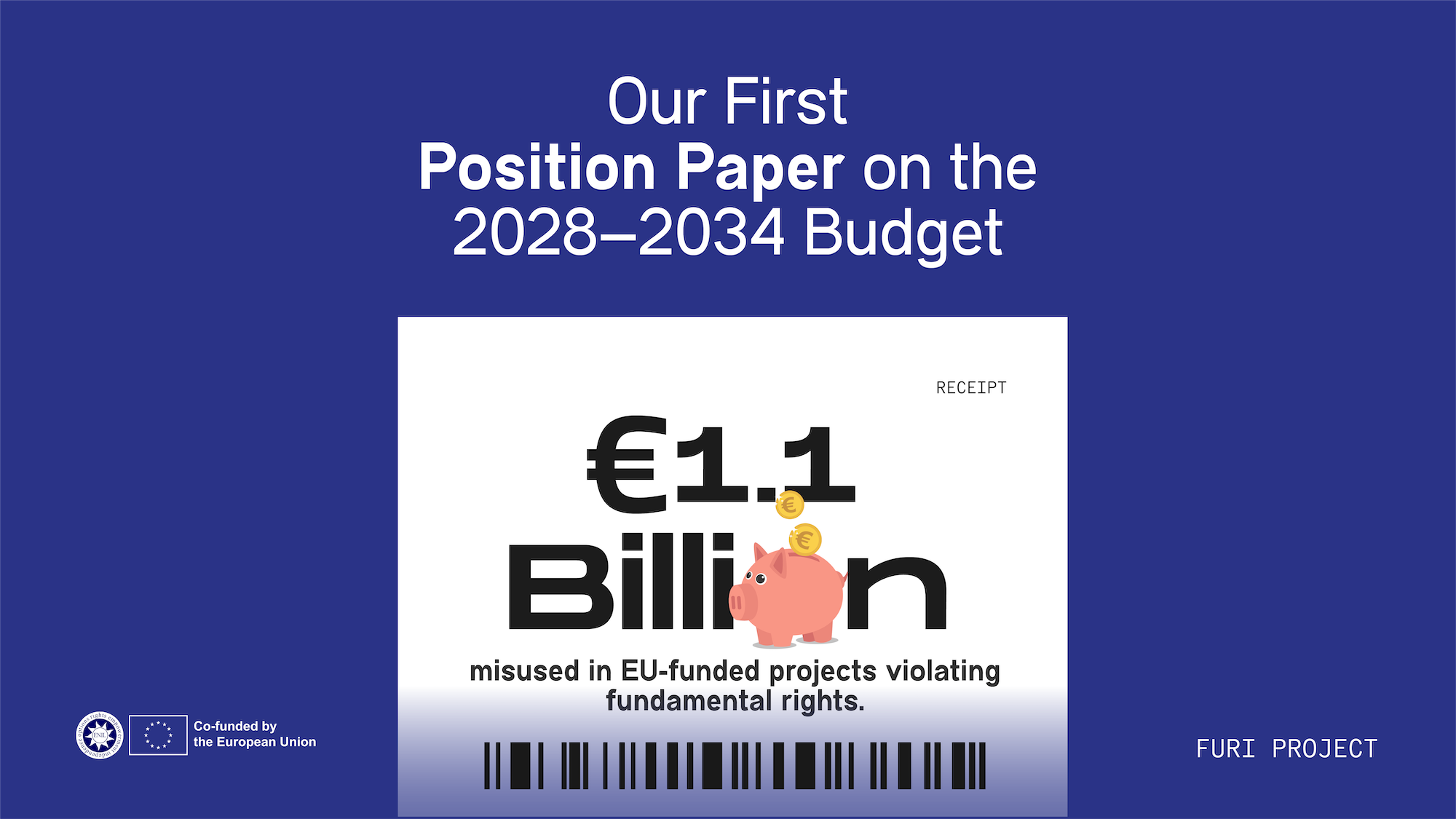12th of January 2024
On January the 11th, the Committee for Employment and Social Affairs (EMPL) of the European Parliament adopted its report on the European Disability Card and the European Parking Card in a unanimous vote. The Parliament decided to align itself with the disability movement on all key issues. We thus welcome the report and call on the national governments in the EU Council, who currently hold opposite positions, to compromise.
In its statement and amendments, submitted in 2023, ENIL recommended to involve disabled people in implementing the future directive by adopting a co-production approach during the expert consultations foreseen in article 11 and the committee to be set up according to article 12. The EMPL committee did not go as far to agree to a co-production approach, defined as power sharing between disabled people and decision makers. However, MEPs called for consulting “persons with disabilities and their representative organisations” and asked Member States to “meaningfully involve representative organisations of persons with disabilities”. Given the European Commission and the EU Council do not support such involvement of disabled people in the implementation of the Disability Card at the moment, the Parliament’s position is major progress. Should the rapporteurs manage to achieve concessions during the interinstitutional negotiations, disabled people would have a role in shaping the European Disability Card and the Parking Card long-term.
The EMPL Committee also supports the recommendation to widen the scope of the Disability Card to not only cover preferential conditions when accessing toll roads and bridges, but also social services and assistance. The Parliament decided to follow the recommendation proposed by the European Disability Forum and ENIL to allow access in “time-limited situations … where European Disability Card holders move to another Member State to engage in an employment contract or enrol in an educational institution until such time as their disability status is reassessed.” Should the Parliament manage to push the Council into accepting such a solution, disabled people would be able to access services such as personal assistance when moving to another EU country without having to go through a second disability assessment right away. This would reduce a major barrier to the freedom of movement.
The Parliaments’ decision to support a broad awareness raising campaign and a barrier free provision of information is positive too.
For now, national governments in the EU Council do not support the involvement of disabled people in implementing the directive and reject any widening of the scope of the directive to cover social services and assistance. ENIL calls on national governments to stop safeguarding national prerogatives and abandon prejudices of welfare tourism and instead focus on advancing the rights of disabled people.
For further information you can contact:
Florian Sanden
ENIL Policy Coordinator, florian.sanden@enil.eu
ENIL Brussels Office vzw/asbl
Mundo J – 6th Floor, Rue de l’Industrie 10, 1000 Brussels
Belgium
secretariat@enil.eu, www.enil.eu

Co-funded by the European Union. Views and opinions expressed are however those of the author(s) only and do not necessarily reflect those of the European Union or the European Commission. Neither the Euro-pean Union nor the granting authority can be held responsible for them.



